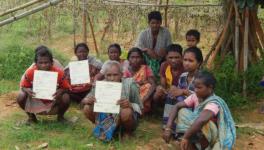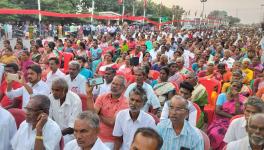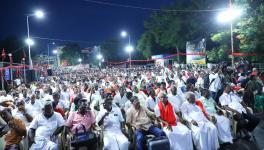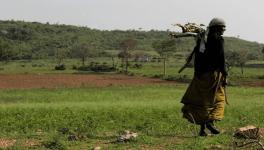Tamil Nadu’s Malasar Tribals Evicted From Ancestral Land
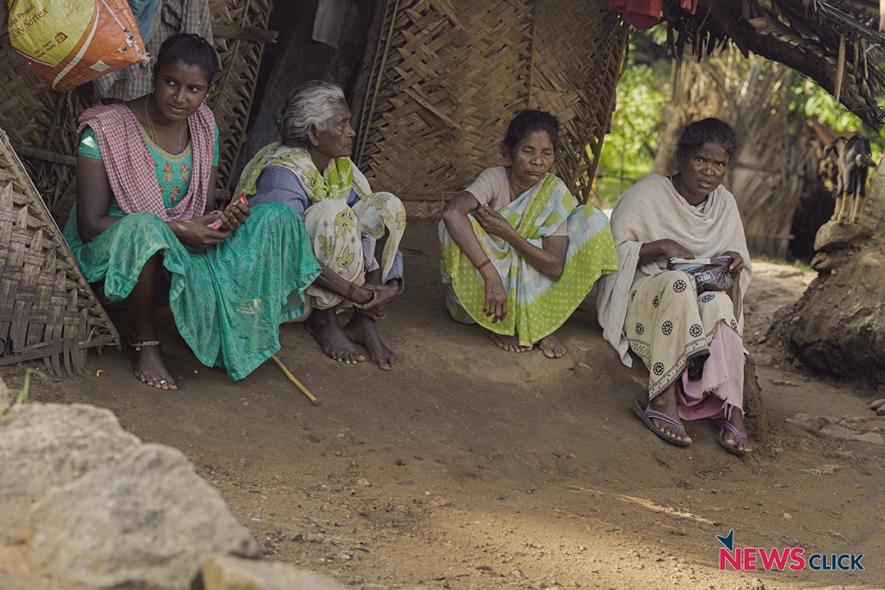
Malasar Adivasi women at the Navamalai settlement.
Ninety-year-old Manjula belongs to one of the 40 Malasar tribal families of Navamalai village, on the borders of Tamil Nadu’s Anamalai Tiger Reserve, who have been pushed to the outskirts and denied land ownership rights.
“We were provided land but the Chettiar—a member of a land-owning caste—pushed us out and planted coconut trees there. What can we do?” a distraught Manjula tells Newsclick.
Out of the many Malasar settlements that were displaced when a dam was constructed across Aliyar River in the 1960s, one was relocated to Navamalai village but the villagers still lack land ownership. Moreover, the Adivasis are being forced by the state administration to relocate to the plains citing the tiger reserve while several farmlands and tourist cottages continue to expand in the hilly areas.
PUSHED TO THE MARGINS
The Adivasis were allowed to settle on Poramboku fallow land when they relocated to Navamalai only to be gradually pushed out due to the lack of pattas.
Staying along the banks of Aliyar River, the Adivasis, who have resided at Navamalai for five generations, are frustrated. “The Chettiar planted coconut trees in the forest area allotted to us without paying compensation. Subsequently, we asked the Tamil Nadu Electricity Board (TNEB) to let us reside on a piece of land near the river,” says Manjula, who relocated to Navamalai along with her parents when she was a child.
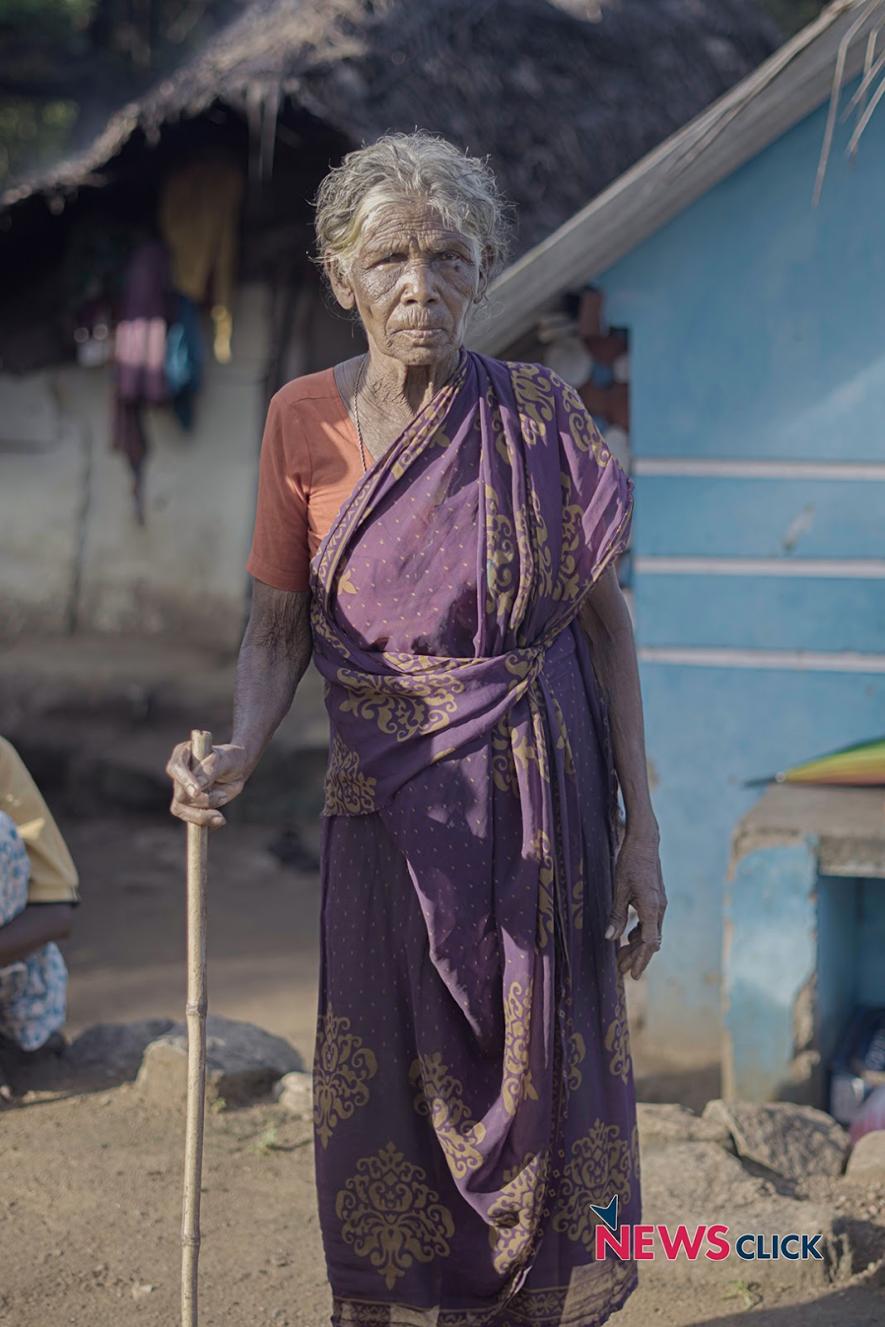
Manjula (90) migrated to Navamalai at a young age.
The 100-plus acres of agricultural land in Navamalai is owned by one person who is locally known as ‘Chettiar’. In fact, Navamalai is commonly known as the ‘Chettiar Colony’.
The tribals live in huts close to the steep banks of Aliyar River and are perennially affected by heavy rains and floods. “Encroachment within 100 feet of the banks is not allowed—but these people stay around 10 feet from the river,” said Lakshmanan, a resident of Navamalai who supports the fight for land.
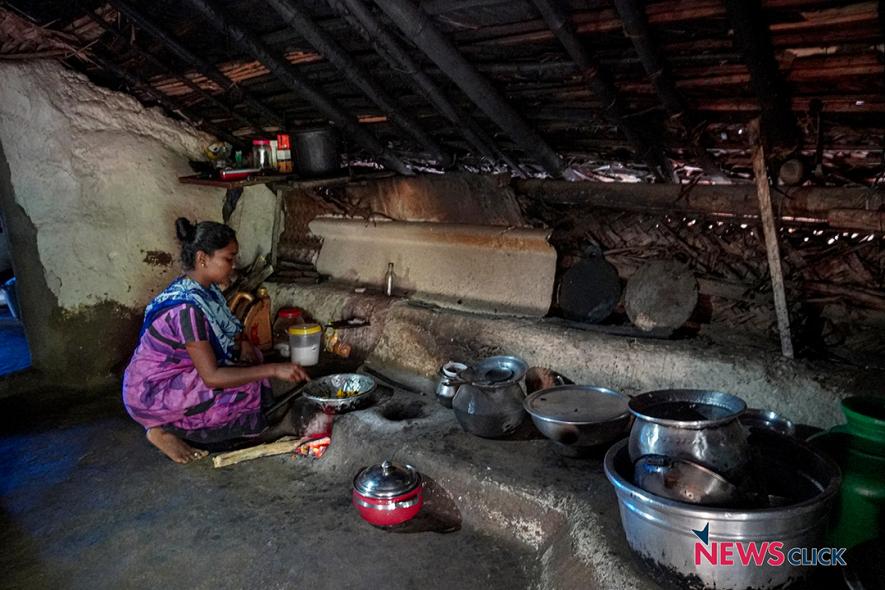
The hut of a Malasar family at Navamalai.
Soggy floors and crashing mud walls are common during monsoons. The villagers narrated how their community members who went fishing drowned in the river and how their chickens were washed away in floods.
NO ELECTRICITY
Besides demanding pattas, the community wants an immediate supply of electricity, which, they say, would help their children study at night and keep them safe from snakes. However, despite a power line running along the other side of the road and the Malasar families staying on TNEB land, they don’t have electricity.
“In the name of Anamalai Tiger Reserve, the tribal settlement has been denied electricity access. According to the forest department, a power line would be dangerous to elephants, tigers and leopards. But the tribal people want to how electricity is supplied to the forest department offices?” VS Paramasivam, president, Tamil Nadu Tribal People’s Association (TNTA), Coimbatore, tells Newsclick.
“Moreover, tourists, alcoholics and even anti-social elements stay in well-equipped cottages with the forest department’s permission,” Paramasivam alleges. “Private farms situated around tribal settlements have been provided electric fences to keep elephants away—but tribals, who protect the forests and nature, have been denied electricity.”
Notably, Navamalai has a hydroelectric powerhouse known as Aliyar Power House and a large part of the village containing well-built houses is supplied power by the TNEB.
Navamalai tribals are also distressed by the lack of sanitation, poor access to healthcare and poor livelihood opportunities.
COERCED TO EVICT
The Forest Rights Act (FRA), 2006, recognises the rights of the forest-dwelling tribal communities and other traditional forest dwellers to forest resources.
“The forest department often imposes restrictions on the tribals and restricts their livelihood opportunities, particularly gathering of forest produce. The Anamalai Tiger Reserve’s joint director recently warned the forest dwellers to not use bamboo for building houses or collect firewood,” Paramasivam alleges.
According to village panchayat president Marudayi, the “forest department says if we live here, it is not good for the forest. But how have we harmed the forest? Are we stealing or poaching deer or smuggling sandalwood? Let the state government prove how are we harmful to the forest.”
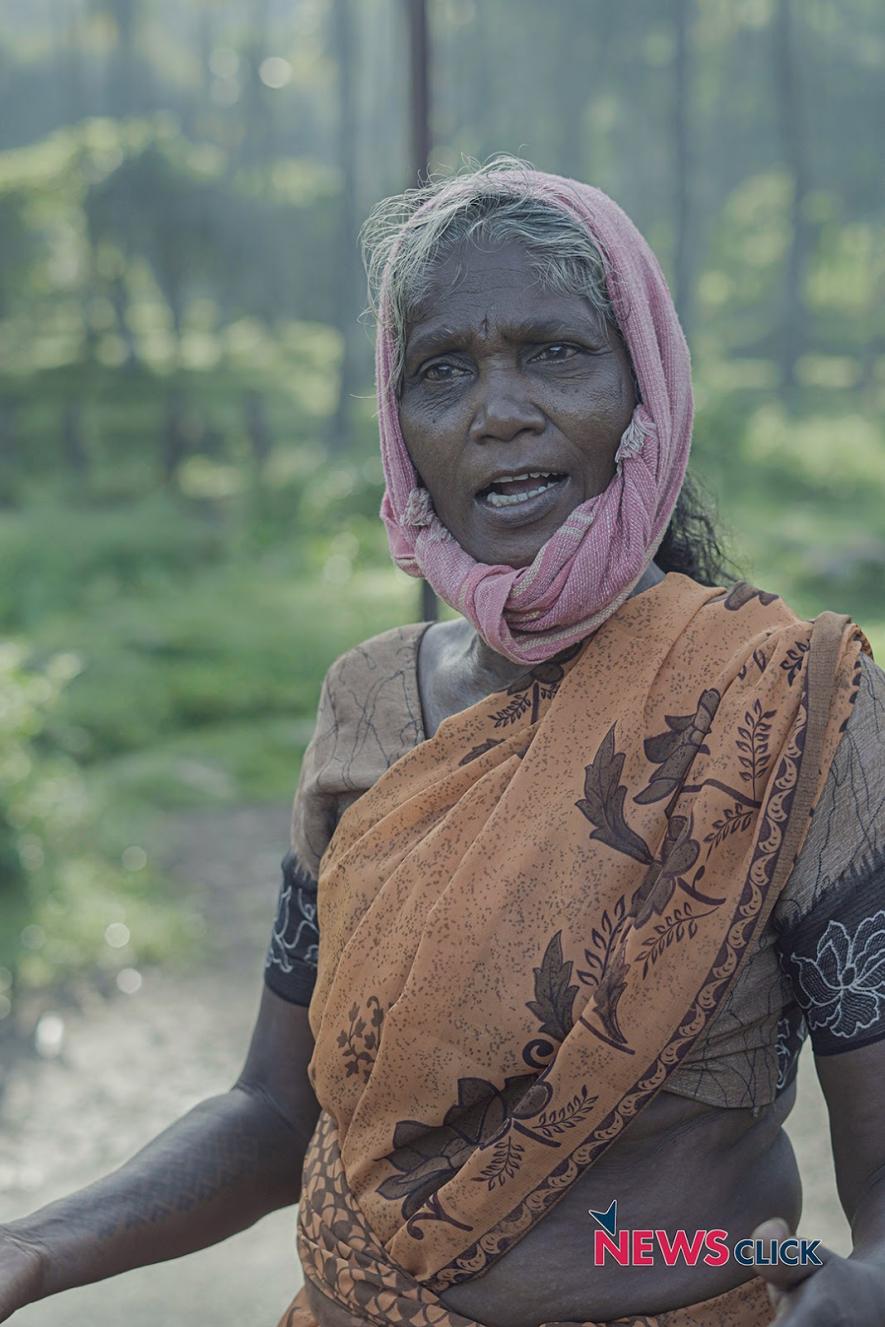
Marudayi is the Navamalai village panchayat president.
The TNTA believes that these are excuses to evict the forest dwellers and bring the land under the control of the forest department.
Denied access to the forest, their ancestral property and source of livelihood, several tribe members were forced to migrate to cities as daily wagers with migrant workers from outside Tamil Nadu replacing them as agricultural labourers.
“We were asked to move downhill near Puliyakandi. We are forest dwellers; how can we live in the plains? We have access to water and firewood and can graze our goats in the forest. This is all we want,” Marudayi says.
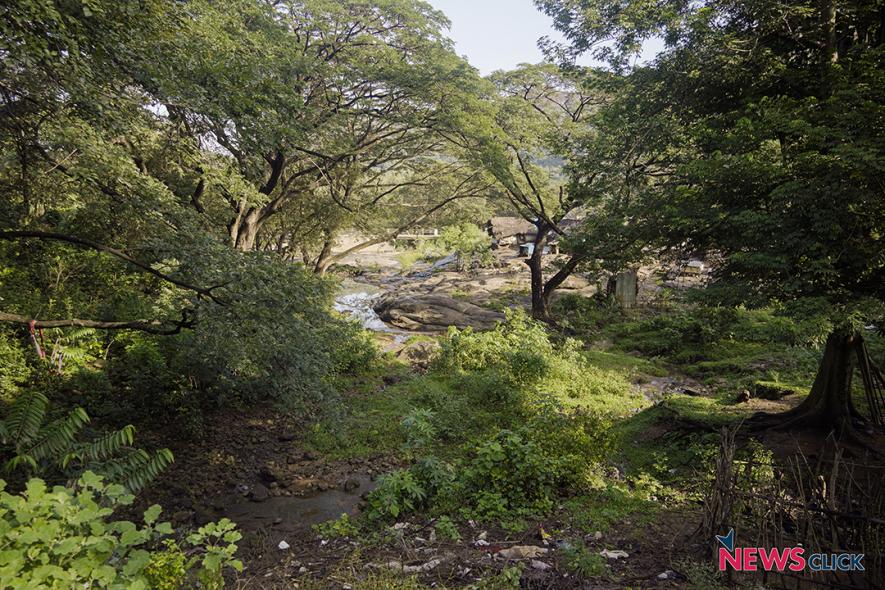
The Aliyar River bank in Navamalai
“I am very frustrated. I don’t know why the authorities do not want us to live in Navamalai. Around 10 years ago, they promised Rs 10 lakh if we moved from here. I gathered the women, wrote an application and approached the forest ranger. We demanded Rs 10 lakh be transferred to the bank accounts of each family before shifting out. But the ranger said, ‘Write that you want to move. Don’t mention that I am making an offer.’”
The Malasar tribe is not the only Adivasi settlement in the Pollachi forest range fighting for forest rights. A couple of years ago, under the leadership of the TNTA, the Anbu Nagar tribal settlement, near Aliyar Dam, waged a long struggle to get pattas and houses.
Get the latest reports & analysis with people's perspective on Protests, movements & deep analytical videos, discussions of the current affairs in your Telegram app. Subscribe to NewsClick's Telegram channel & get Real-Time updates on stories, as they get published on our website.









